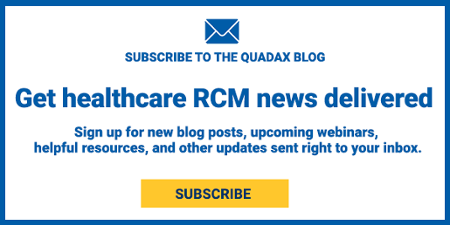Legislation enacted providing reimbursement for testing and treatment of uninsured COVID-19 patients.
Families First Coronavirus Response Act or FFCRA and the Paycheck Protection Program and Health Care Enhancement Act which each appropriate $1 billion to reimburse providers for conducting COVID-19 testing for the uninsured.
The Coronavirus Aid, Relief, and Economic Security (CARES) Act provides $100 billion in relief funds for hospitals and other health care providers on the front lines of the COVID-19 response. Within the Provider Relief Fund, a portion of the funding will be used to support healthcare-related expenses attributable to the treatment of uninsured individuals with COVID-19.
The projected implications
Researchers from the Kaiser Family Foundation estimated total hospital reimbursement to range from $13.9 billion to $41.8 billion depending on the rate of and severity of COVID-19 hospitalizations among the uninsured population.
Researchers also estimated that up to 2 million uninsured individuals could require hospitalization for COVID-19. Although, that number could be as low as 670,000 hospitalizations.
Total hospital reimbursement for the treatment of uninsured COVID-19 patients would come from the billions in dollars in emergency spending for hospitals included in the coronavirus stimulus package.
How to participate in the COVID-19 Uninsured Program
Health care providers who have conducted COVID-19 testing or provided treatment for uninsured individuals with a COVID-19 diagnosis on or after February 4, 2020, can electronically request claims reimbursement through the program and will be reimbursed generally at Medicare rates, subject to available funding. Steps will involve: enrolling as a provider participant, checking patient eligibility, submitting patient information, submitting claims electronically, and receiving payment via direct deposit.
Beginning on May 6, 2020, providers can start submitting patient information and claims for reimbursement through this Health Resources & Services Administration portal. The following information is required when signing up for the program.
Provider Information:
- Taxpayer Identification Number (TIN) Validation, which can take 1-2 business days to process.
- Optum Pay Direct Deposit/ACH, which can take 7-10 business days to process.
- Provider Roster, which can take 1-3 business days to process.
Patient Information:
- Uninsured Individual Information: patient information needs to be submitted individually or through a batch upload.
- Attestation: Provider must attest that the patient does not qualify for any healthcare including Medicare or Medicaid.
- Temporary Member ID: This is needed before a claim can be submitted. It takes less than 24 hours to be received and is valid for 30 days.
Claim Information:
- For dates of service or admittance on or after February 4, 2020, providers will be eligible to seek reimbursement for COVID-19 testing and testing-related visits for uninsured individuals, as well as treatment for uninsured individuals with a COVID-19 diagnosis.
- Claims must be submitted electronically through a clearinghouse. No paper claims will be accepted.
The HRSA COVID-19 Uninsured Program is using a unique version of Smart Edits (i.e., edits created by the HRSA payer), which is an EDI capability that detects electronic claims with potential errors. When a claim is submitted with a potential error, Smart Edits sends a message back to the submitting care provider to explain why the claim was rejected and provides direction on how to resolve as part of the X12 277CA claim level response. Repaired claims should be sent with the original frequency code of 1, not with a replacement or voided claim indicator of 7 or 8.
The submitting care provider is responsible for working their 277CA and resolving rejections as applicable to avoid denials. The HRSA has established this process to help our clients catch claim billing errors and correct them because all claims submitted will be complete and final. Interim bills, corrected claims, late charges, voided claim transactions and appeals will not be accepted.
Quadax is more than a clearinghouse. Claims Management by Quadax allows for the creation of user-defined rules, including: provider-specific edits, auto-correct or suppress edits and custom converts. Easily stop a claim, change, leave blank or move field data, auto correct to modify data based on a particular error, or suppress an error on a claim. Our Edits and Documentation (EDG) team is dedicated to staying on top of the latest developments for submitting COVID-19 claims.
Payer Information:
- Claims should be submitted through your clearinghouse using the Payer ID 95964 (Payer Name: COVID19 HRSA Uninsured Testing and Treatment Fund) using claim type NACO12, NACO34, or NACO64.
- Clearinghouses will receive a 999 file level acknowledgement and 277CA claim level report to include HIPAA and ACE rejections which will be passed to the provider. 835s will not be delivered via the clearinghouse connectivity; providers will be required to access via OptumPay. EOBs will not be issued to patients.
Reimbursement Information:
- Reimbursement will be based on current year Medicare fee schedule rates (except where otherwise noted) and on the incurred date of service.
- Publication of new codes and updates to existing codes will be made in accordance with CMS. And, for any new codes where a CMS published rate does not exist, claims will be held until CMS publishes corresponding reimbursement information.
For more information about eligibility, what’s covered, important dates and to sign up for the program, visit https://coviduninsuredclaim.linkhealth.com/.
We hope you stay healthy and well.


